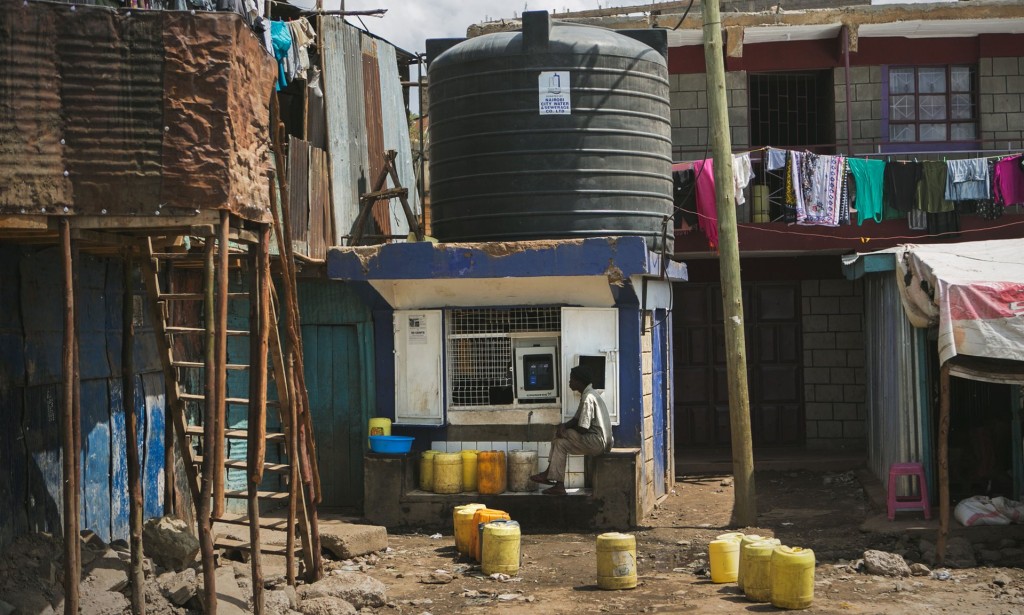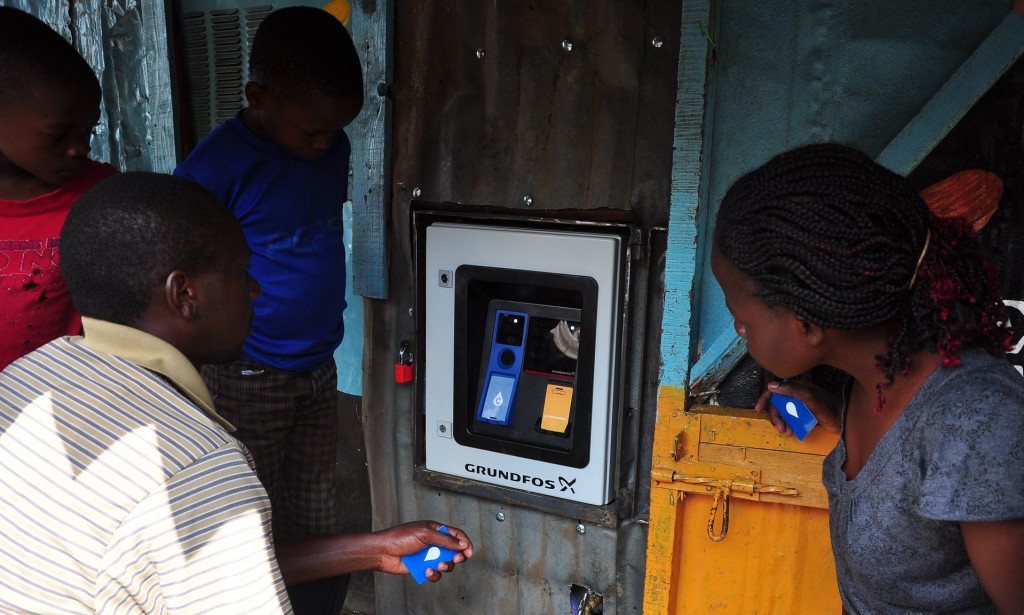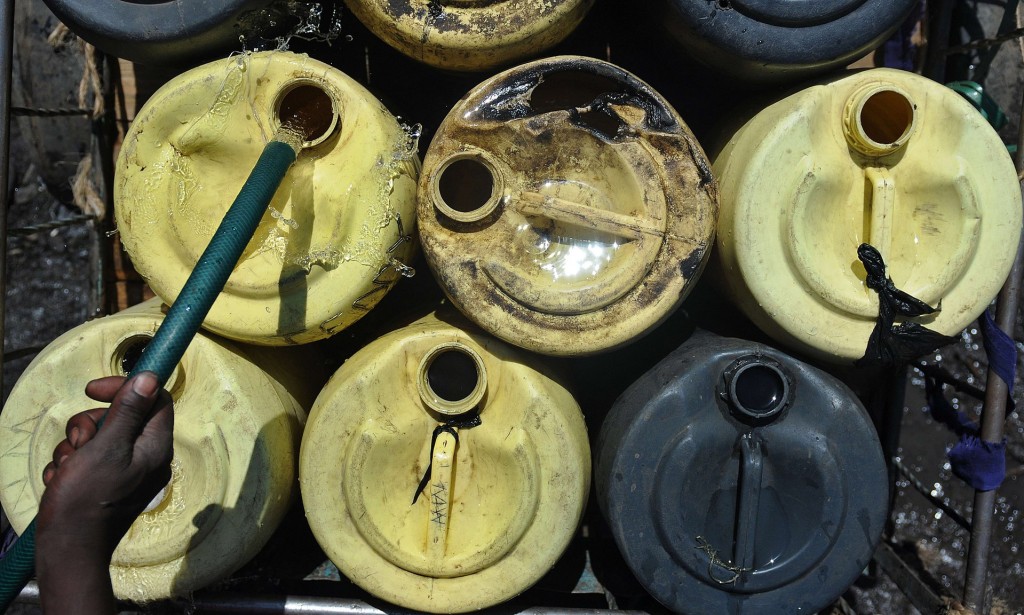
Local water vendors are not happy with fruit seller Mercy Muiruri. At the end of last year, she found a different solution to washing fruits before making them into a salad for her customers – a water ATM. “Now I know the water I use is safe and from a trusted source. Even my customers will be happy,” she says.
Muiruri has been operating food businesses in one of Kenya’s most populous slums, Mathare, for nearly two decades. Until recently, she used water from local vendors whenever she needed it.
“But I could not vouch for its safety. I, like many of my friends, never knew the source of that water. It got to us in 20-litre plastic containers and we used it,” she says.

The water reaches the ATM through 18km of newly laid water pipes, connected from the city’s main supply lines.
Photograph: Grundfos
Now she and other slum residents have something to smile about. Last year a public-private partnership between Nairobi Water and Sewerage Company, the city’s main water distribution company, and Grundfos, a Danish water engineering firm, resulted in the installation of water vending machines. The machines are expected to revolutionise water availability and distribution to populations that have long been at the mercy of water cartels and a changing and unreliable climate.
To buy clean water, users load points onto smart cards which are able to access the water ATMs around the slum. By a simple swipe of their smart card on the ATM’s sensor, water is released from the main storage and into a waiting container.
The water reaches the ATM through 18 km of newly laid pipes, connected from the city’s main supply lines which receive treated water from Ndakaini Dam, the main reservoir for the city’s more than 3 million residents.
“Apart from knowing we are drinking and using safe water, the vending machines have also helped us cut costs,” Muiruri says. “I can put the difference saved back into my business.”
The daily income in a slum household in Kenya is just over a dollar, and the average home uses around 100 litres of water a week. The water vendors operating in the slum would charge Sh50 (50 cents) for a 20 litre container of water. With the introduction of the ATMs, weekly expenditure on water in Mathare has been reduced from Sh250 ($2.5) to Sh2.50 (2.5 cents).
The Nairobi Water and Sewerage Company has been trying to get viable solutions to water supply problems within informal settlements for years. “Initially, our pipes were vandalised by these same cartels that sold water to residents at exorbitant prices,” says Mbaruku Vyakweli, the water company’s communications officer. “Now, all we need is a safe and secure area, agreed on by the residents, and we supply the water from our own dams and reservoirs. Our prices are constant because the product is available throughout. Plus, the water ATMs are run and monitored by residents; they own them and therefore take better care of them.”

Photograph: Tony Karumba/AFP/Getty Images
The ATMs in Mathare are managed by a village chairman in association with a committee of residents. The smart cards are given out to residents for free and they load them with a value of their choice from a Nairobi Water and Sewerage Company outlet.
These outlets are spread around the slum, home to some 200,000 people. They are located in central and well-lit areas, such as near floodlights and along the main streets of Mathare, making them easily accessible day and night.
Residents say the health benefits of the scheme are already being felt. In the middle of last year, a cholera outbreak swept through the slum and other surrounding areas, resulting in two deaths. The cramped slum conditions coupled with poor sanitation – including unhygienic water – contributed to the spread of the disease. At the time, Médecins Sans Frontières was recording 200 new cholera cases every week.
Although Muiruri has only been using her smart water card for four months, the memory of dealing with water brokers and the constant worrying over her family’s health now seems distant. “Life has become much easier. I can budget and I am also saving on other costs because I spend less on charcoal or kerosene to boil my drinking water. It has already been treated,” she says.
Nairobi’s water company now hopes to roll out the machines into more informal areas, using the technology to safely solve everyday problems.

